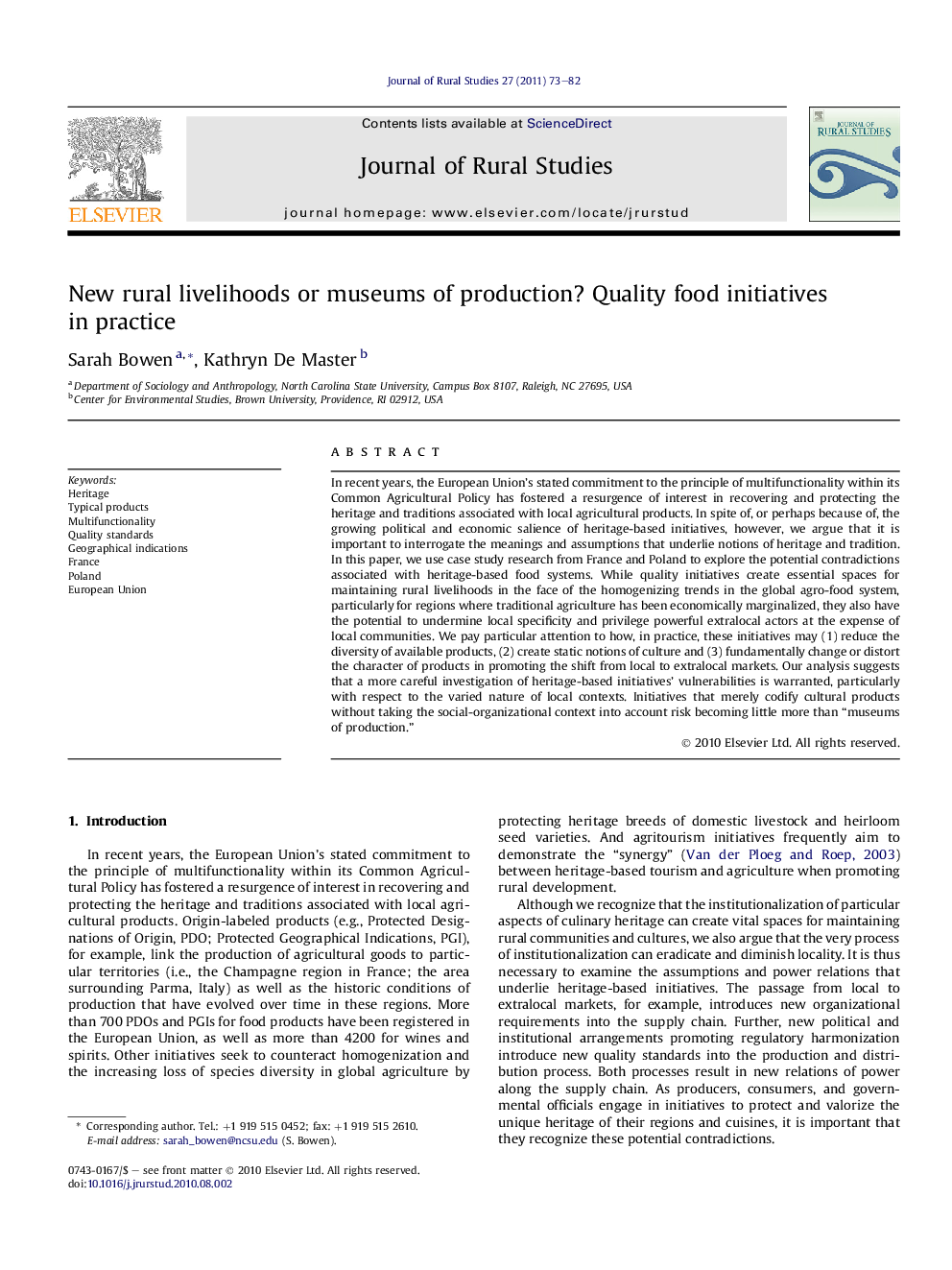| کد مقاله | کد نشریه | سال انتشار | مقاله انگلیسی | نسخه تمام متن |
|---|---|---|---|---|
| 92726 | 160001 | 2011 | 10 صفحه PDF | دانلود رایگان |
In recent years, the European Union’s stated commitment to the principle of multifunctionality within its Common Agricultural Policy has fostered a resurgence of interest in recovering and protecting the heritage and traditions associated with local agricultural products. In spite of, or perhaps because of, the growing political and economic salience of heritage-based initiatives, however, we argue that it is important to interrogate the meanings and assumptions that underlie notions of heritage and tradition. In this paper, we use case study research from France and Poland to explore the potential contradictions associated with heritage-based food systems. While quality initiatives create essential spaces for maintaining rural livelihoods in the face of the homogenizing trends in the global agro-food system, particularly for regions where traditional agriculture has been economically marginalized, they also have the potential to undermine local specificity and privilege powerful extralocal actors at the expense of local communities. We pay particular attention to how, in practice, these initiatives may (1) reduce the diversity of available products, (2) create static notions of culture and (3) fundamentally change or distort the character of products in promoting the shift from local to extralocal markets. Our analysis suggests that a more careful investigation of heritage-based initiatives’ vulnerabilities is warranted, particularly with respect to the varied nature of local contexts. Initiatives that merely codify cultural products without taking the social-organizational context into account risk becoming little more than “museums of production.”
Journal: Journal of Rural Studies - Volume 27, Issue 1, January 2011, Pages 73–82
